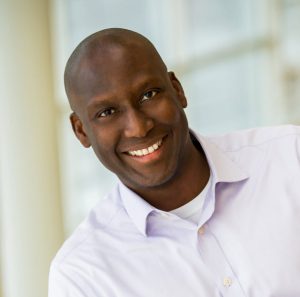I had an opportunity to visit with Innovative Thinker, Martin Felli currently Executive Vice President, Chief Legal Officer, Chief Compliance Officer and Corporate Secretary for JDA Software, headquartered in Scottsdale, Arizona. In addition to being responsible for overseeing his legal department and management of all core legal functions for the company, Martin leads staff operations for JDA’s Senior Leadership Team. Recently, JDA announced that the SVP and General Manager of JDA’s Center of Excellence in India, Mexico and Poland with over 2000 employees would also report to Martin, giving him indirect oversight of a significant population of JDA’s employees and a larger seat at the executive leadership table.
Prior to joining JDA, Martin was General Counsel and Corporate Secretary of ECOtality, Inc., a company that provided electric vehicle (EV) charging infrastructure products and solutions used in on-road, grid-connected vehicles, overseeing “The EV Project” the largest US Department of Energy EV infrastructure project at that time. Before that, he was SVP and Associate General Counsel of Clear Channel Outdoor, Inc. and Senior Counsel for Home Box Office (HBO). He started his career as a Corporate Finance and M&A Associate at Latham & Watkins.
From a humble, hard-working start as a financial printer, Martin Felli has navigated an impressive career trajectory to the executive team in one of America’s leading companies and recognition as an innovative legal industry leader. Here’s my interview with Martin:
MZ: Financial Printer? Tell us about that.
MF: My undergraduate major was in political science and I went to school in New York City. I went to school full-time and worked full-time at RR Donnelly, a financial printer. I took the job solely because it was a 4pm to midnight shift. That time was the sweet spot for me because I could go to school in the morning until about three and then jump off to work at four downtown on Park Place. I would get out at midnight and then walk to the subway station at the World Trade Center to get on the last train at about 1am. I’d get home at about 2am, crash and start all over again the next day. RR offered me several promotions which I turned down so I could maintain a schedule that allowed me to fit in my college schedule.
MZ: What led you to your current role?
MF: After taking ECOtality through a restructuring and sale, I joined JDA Software and, as Deputy General Counsel, was responsible for key legal matters for JDA across the approximately 38 countries we operate. When my predecessor resigned from the company several years ago to return to the Bay Area, I was appointed Chief Legal Officer and jumped into the role with both feet.
MZ: How do you measure success in your department?
MF: We have various metrics that we use within the legal team to track including turn-around time for contract requests, contract signature SLAs, number of amendments for legal-related errors, meeting our goals and surveys. We also set goals at the beginning of the year that we track as the year goes along to ensure that we are performing in line with the goals that we originally set.
MZ: How is the legal industry changing?
MF: From an in-house perspective, legal teams are being measured and evaluated like business units from an efficiency and productivity perspective. Unlike in the past, legal departments are being more and more challenged to justify every element of their operations and activities. Like all aspects of business today resources are tight and legal teams are also being asked to do much with little which puts a lot of pressure for legal teams to become innovative and creative in the way they deliver service to their clients.
MZ: What effect will the use of big data have on companies from a legal perspective?
MF: I think it will have a significant effect. Data is the new gold. How companies acquire and keep their data and the various forms of data they maintain from usage and trade data is already significant but will become even more so. The legality around the transaction of data is yet to be completely defined and will task legal teams across all industries and companies. From a user perspective, legal departments will turn to big data as they try to further become operationally efficient and prove their value.
MZ: What do you think is going to be the biggest game changer in the legal industry?
MF: The use and application of Machine Learning (ML) and Artificial Intelligence (AI) in the in-house environment, allowing legal departments to implement solutions to permit their clients to engage in self-help without having to involve the legal department on every item, such as NDA reviews and processing. This will relieve the in-house departments to be more proactive and embedded in our core business, rather than being consultants on day to day minutia.
MZ: What is your favorite technology right now?
MF: Perhaps not my favorite but certainly the most intriguing technology is Virtual Reality (VR). You can literally take a lunch break in 10 minutes and go on vacation via VR!
MZ: What, if anything, is preventing you or your colleagues from implementing more legal tech and innovation? And how do you overcome this?
MF: Things may be changing but the legal field has historically been one of the later adopters of technology. I believe the skepticism over some technology and difficulty of use has been some of the impediments to adoption. That said, the practical impact is being able to make the ROI case for technology when budgets are being vetted for value. I believe the way to overcome some of these impediments is through (1) a thorough and disciplined socialization process so that it is clear that the technology being implemented is going to move the needle, will be used and not left abandoned; and (2) a clear business case is made to the leadership along the lines of their organization’s priorities and values that will impress upon them the value to the legal team and ultimately the organization.
MZ: In a perfect world with no limits, what would legal tech look like?
MF: Technology that is easy to use, encourages collaboration, limits and frees individuals from the non-value add administrative tasks, integrates seamlessly with other existing technologies and delivers true realizable and trackable value.
MZ: What are the key metrics you track for your department and what do you see as your top areas for benchmarking with others? Do you see an opportunity to partner with outside counsel (OC) regarding any of these metrics or benchmarking?
MF: Turnaround time on contracts, number of contracts processed in a quarter, amount of disputes that are prevented, and so on. I would definitely like to work with OC to design new ways of looking at our services and creating metrics around them and helping us benchmark against others. We need better ways of tracking metrics and benchmarking against other law departments.
MZ: How are data and metrics changing the decision-making process in legal, if in fact they are?
MF: It is helping us with our decision making on where to focus resources, how to react to matters and how to support initiatives that are proposed to the organization. As we look across our various offices, we use data that comes in from deal-flow activity to determine and assess which legal resources to leverage for certain markets. We’ve also used data and metrics in our hiring to assess legal resources needed in-house based on business growth and tools to help us assess partners’ FCPA compliance and key data points on selections for our alliance program.
MZ: What advice would you give technology companies playing in this space?
MF: There are no laurels to rest on anymore. You must keep an eye on the competition but more importantly you have to innovate and develop the capacity to change in a continuous loop.
MZ: What advice would you give law firms looking to grow their business?
MF: First, tailor your offerings to your clients – one size may not fit all anymore. Second, try as much as possible to understand your client, their business and operations and act accordingly – making them see you as a force multiplier will engender trust and possibly lead to a long-term relationship.
MZ: As automation moves attorneys up the value chain, what other career opportunities do you see for attorneys of the future?
MF: The great thing about being an attorney is that you have the foundation upon which many careers can be built. I can see attorneys moving into business, risk mitigation, operations and similar roles where their analytical skills and abilities will be valuable.
MZ: Some companies and firms are implementing diversity programs with teeth. How do you think this will change the industry?
MF: It will bring more creativity and differing perspectives into organizations that can only help propel many industries forward. Services and products will be better for it as the companies that create these products and services reflect more thoughtfully on the populations they serve.
MZ: In recent years we’ve seen the role of the “non-lawyer” gaining ground, including non-lawyers owning firms outside of the U.S. and the Big 4 getting involved in law. How will this change the profession?
MF: I believe it will push lawyers to be more creative to compete. That said, lawyers have unique roles that cannot be fully supplanted by non-lawyers and over time clients will realize the value that lawyers bring. Personally, I believe the high value work will always be relegated to lawyers for prudent consumers of legal services.
MZ: Now for some serious legal topics: if you were stuck on a desert island, what are the three things you’d want to have with you?
MF: Satellite phone (with a charge), thermal blanket, and atmospheric water-generation unit. I’d probably survive about a day or two with these things then after that, it’s anyone’s guess!
MZ: If you weren’t doing this, what would you be doing?
MF: Modern house designer
MZ: What inspires you the most in your career?
MF: Helping a leadership team develop strategy, deliver on goals, grow a company while increasing morale and building a strong culture that people want to identify with.
MZ: If you could take one “moonshot” for the legal industry for the next 3-5 years, what would it be?
MF: Harmonized legal regime to govern the ethical development and promulgation of AI and robotic technologies or worldwide harmonization of IP laws.
 Monica Zent is an experienced entrepreneur, investor, businesswoman and trusted legal advisor to leading global brands, over a period that spans decades. Her most recent venture is founder and CEO of Foxwordy Inc., the digital collaboration platform for the legal industry. She is also founder of ZentLaw, one of the nation’s top alternative law firms. Zent is an investor in real estate and start-ups. She dedicates much of her time and talent to various charitable causes. She is a diversity and inclusion advocate, inspiring all people to pursue their dreams. When she’s not running companies, Zent runs distance as an endurance athlete.@monicazent
Monica Zent is an experienced entrepreneur, investor, businesswoman and trusted legal advisor to leading global brands, over a period that spans decades. Her most recent venture is founder and CEO of Foxwordy Inc., the digital collaboration platform for the legal industry. She is also founder of ZentLaw, one of the nation’s top alternative law firms. Zent is an investor in real estate and start-ups. She dedicates much of her time and talent to various charitable causes. She is a diversity and inclusion advocate, inspiring all people to pursue their dreams. When she’s not running companies, Zent runs distance as an endurance athlete.@monicazent


